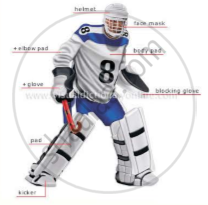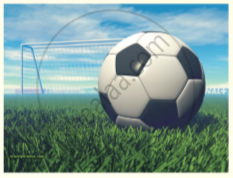Advertisements
Advertisements
प्रश्न
Why did Swami Haridas say Tansen was ‘talented’?
उत्तर
APPEARS IN
संबंधित प्रश्न
Answer these question in 30–40 words.
Why did Aurangzeb ban the playing of the pungi?
Lushkoff is earning thirty five roubles a month. How is he obliged to Sergei for this?
The cat and the author are very fond of each other. How has this been shown in the story? Where was the cat after the fire? Who brings it back and how?
Answer of these question in a short paragraph (about 30 words).
What incidents during the Everest expedition show Santosh’s concern for her team-mates?
(a) Given below are five lines from a poem but they are not in the right order.
Get into groups of four. Read the lines and put them in the right order. Read
the version that you develop to the whole class.

(b) Who is 'I' in these lines?
(c) Imagining yourself as the subject of this poem, write five lines about
yourself in less than five minutes.
You may like to
- define yourself
- state what you do
- explain why people like/dislike you
- mention any other characteristic about yourself
Form pairs - one student will read the text for 'Hockey', and the second student will read the text for 'Football'.
Hockey

The game starts when the umpire blows his whistle for the opening pass-back. The passback is made at the centre of the field to start the game (also after half- time and after each goal is scored). The ball, which may be pushed or hit, must not be directed over the centre line. All players of the opposing team must stand at least 5 yard from the ball and all players of both teams, other than the player making the pass-back must be in their own half of the field.
There are two umpires to control the game and to administer the rules. These umpires are the sole judges of the game. The umpires are responsible for keeping time for the duration of the game.


In front of each goal is an area known as the penalty area. This is a rectangular area, 40.2m wide and extending 16. Sm into the field where the goalkeeper operates.
A standard adult football match consists of two periods of 45 minutes each, known as halves. Each half runs continuously, meaning that the clock is not stopped when the ball is out of play. There is usually a 15-minute half-time break between halves. The end of the match is known as full-time. Anytime during the match, a team can substitute upto three players maximum.
The game is controlled by a referee who is the official timekeeper for the match, and may make an allowance for time lost through substitutions, injured players requiring attention, or other stoppages. There are also two linesmen who keep guard of the touchlines or sidelines, signalling when the ball crosses the boundary lines. The referee alone signals the end of the match.
Handling the ball deliberately, pushing or tripping an opponent, or hitting a player from behind are examples of fouls, punishable by a direct free kick or penalty kick depending on where the offence occurred. Other fouls are punishable by an indirect free kick.
The referee may punish a player's or substitute's misconduct by a caution (yellow card) or sending-off (red card). A player is given a yellow card is said to have been 'booked'.
• Red - Serious misconduct resulting in ejection from the game. If a player has been sent off, no substitute can be brought in his place.
The black man's face bespoke revenge
As the fire passed from his sight.
For all he saw in his stick of wood
Was a chance to spite the white.
The last man of this forlorn group
Did nought except for gain.
Giving only to those who gave
Was how he played the game.
Their logs held tight in death's still hands
Was proof of human sin.
They didn't die from the cold without
They died from the cold within.
Read the lines given above and answer the question that follow.
What were the logs in their hands ? What was their significance ?
Old Kaspar took it from the boy,
Who stood expectant by;
And then the old man shook his head,
And,with a natural sigh,
"Tis some poor fellow's skull," said he,
"Who fell in the great victory.
"I find them in the garden,
For there's many here about;
And often when I go to plough,
The ploughshare turns them out!
For many thousand men,"said he,
"Were slain in that great victory."
Read the lines given above and answer the question that follow.
What did Old Kasper do when Peterkin came to him with the object?
"They say it was a shocking sight
After the field was won;
For many thousand bodies here
Lay rotting in the sun;
But things like that, you know, must be
After a famous victory.
"Great praise the Duke of Marlbro'won,
And our good Prince Eugene."
"Why,'twas a very wicked thing!"
Said little Wilhelmine.
"Nay...nay...my little girl,"quoth he,
"It was a famous victory.
"And everybody praised the Duke
Who this great fight did win."
"But what good came of it at last?"
Quoth little Peterkin.
"Why that I cannot tell,"said he,
"But 'twas a famous victory."
Read the lines given above and answer the question that follow.
How does the poet describe the scene on the field after the battle?
After considering the matter, and talking it over with his wife, farmer Jones said that he would take John, and do well by him, now that his mother was out of the way; and Mrs. Ellis, who had been looking out for a bound girl, concluded that it would be charitable in her to make choice of Katy, even though she was too young to be of much use for several years.
“I could do much better, I know,” said Mrs. Ellis; “but as no one seems inclined to take her, I must act from a sense of duty expect to have trouble with the child; for she’s an undisciplined thing—used to having her own way.”
But no one said “I’ll take Maggie.” Pitying glances were cast on her wan and wasted form and thoughts were troubled on her account. Mothers brought cast-off garments and, removing her soiled and ragged clothes, dressed her in clean attire. The sad eyes and patient face of the little one touched many hearts, and even knocked at them for entrance. But none opened to take her in. Who wanted a bed-ridden child?
“Take her to the poorhouse,” said a rough man, of whom the question “What’s to be done with Maggie?” was asked. “Nobody’s going to be bothered with her.”
“The poorhouse is a sad place for a sick and helpless child,” answered one.
“For your child or mine,” said the other, lightly speaking; “but for tis brat it will prove a blessed change, she will be kept clean, have healthy food, and be doctored, which is more than can be said of her past condition.”
Read the extract given below and answer the question that follow.
Who came to mourn the dead woman? Why did no one follow the dead cart?
Why is Mr. Purcell compared to an owl?
Why did Tansen agree to sing Raga Deepak?
Why was the crocodile’s wife annoyed with her husband one day?
Why does the author call sleep a wonder?
Who do you think or understand what the talking fan wished to convey?
What does he want to know about his teacher? Why?
What are some of the particular habits of the mongoose and the camel?
Answer the following question.
Why was Algu upset over Jumman’s nomination as head Panch?
Read the extract given below and answer the questions that follow:
| Portia: The quality of mercy is not strained; It droppeth as the gentle rain from heaven Upon the place beneath : it is twice blessed : It blesseth him that gives and him that takes. Tis mightiest in the mightiest; it becomes The throned monarch better than his crown: |
- Where does this scene take place? Why Is Portia here? [2]
- To what is mercy compared in these lines? [2]
- Why does Portia call mercy ‘twice blessed’?
Explain the lines:
‘Tis mightiest in the mightiest: it becomes
the throned monarch better than his crown: [3] - Later in her speech Portia mentions a sceptre. What is a sceptre?
How, according to Portia, is mercy above the ‘sceptred sway’? [3]
In Act III Scene ii of the play, The Tempest, upon hearing the music of Ariel, Stephanis says that the island will prove to be a “brave kingdom” to him because ______.
